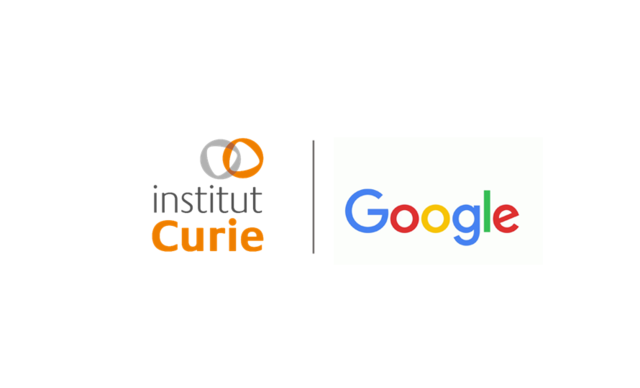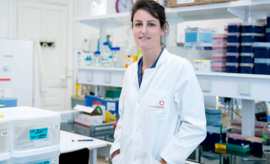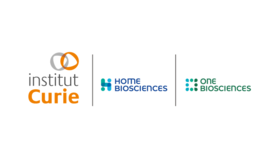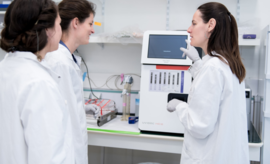Institut Curie & Google initiate a collaboration using artificial intelligence (AI) for the analysis of complex data

At the cutting edge of innovation, Institut Curie and Google initiate a joint artificial intelligence (AI) research program to develop and implement deep learning (DL) methods for the analysis of complex single-cell transcriptomic and epigenetics data. This program will reunite Institut Curie’s Dynamics of Epigenetic Plasticity in Cancer Team, led by Céline Vallot, and Google Lab, under the direction of Jean-Philippe Vert.
The emergence of new personalized medicine including targeted therapies is a major challenge for the treatment of cancer. Genetic heterogeneity within tumors is a key determinant of treatment response and resistance; sub-population of cells bearing a mutation conveying resistance can survive and be selected in a Darwinian process. In addition, epigenetic mechanisms are anticipated to play a role in the adaptation of cancer cells confronted with environmental, metabolic or therapy-related stresses. The last decade witnessed the development of new methods permitting the analysis of tumor cells at an unthinkable granularity few years ago but the analysis of these complex data remain challenging.
The innovative combination of single-cell and deep learning
Within this joint collaboration, Institut Curie and Google will combine their expertise in single-cell and deep-learning to develop breakthrough approaches at the bridge of data science and biology. More specifically, the expertise of Céline Vallot and her team will enable the generation of scChIP-seq data1 obtained from mouse samples and cell lines. These valuable data sets will be analyzed and used by Google’s team to develop new deep-learning algorithms in collaboration with Vallot’s team.
The objective of the collaboration? The use of deep learning approaches to study single-cell epigenomics and transcriptomics data in cancer, in order to characterize tumor heterogeneity and eventually predict resistance to treatment. This project aims to dig into the structure of the learning algorithms to extract information and interpret these components at the biological level.
Together, our objective is to leverage data science to unravel novel mechanisms of tumor evolution.
explains Celine Vallot, head of the Dynamics of Epigenetic Plasticity Team at Institut Curie.
This partnership is proving to be pioneer, as rejoiced by Jean-Philippe Vert, research scientist at Google Research – Brain team: “We are thrilled to collaborate with Céline Vallot and her team at Institut Curie on this ambitious and multidisciplinary project. Combining the latest technologies in cancer genomics and machine learning raises a number of challenges we will tackle together, and should ultimately allow us to better understand the disease and how to treat it.“
Institut Curie is very pleased to be the first research center selected by Google Research for a partnership of this nature. It reinforces our commitment to play a major role in the development of artificial intelligence approaches applied to life science.
adds Amaury Martin, head of Technology Transfer Office at Institut Curie & Carnot Curie Cancer.
1Single-cell chromatin immune-precipitation sequencing (scChIP-seq)




